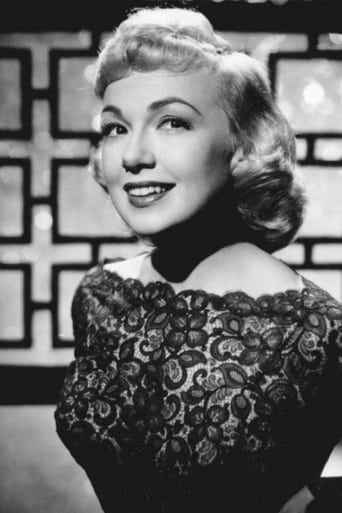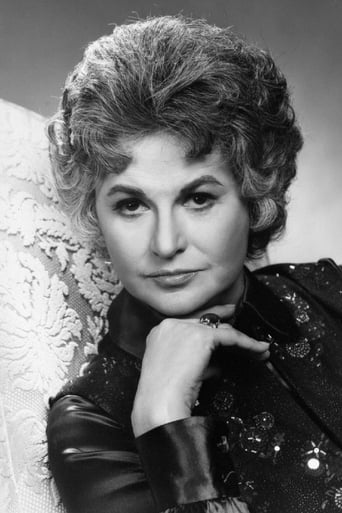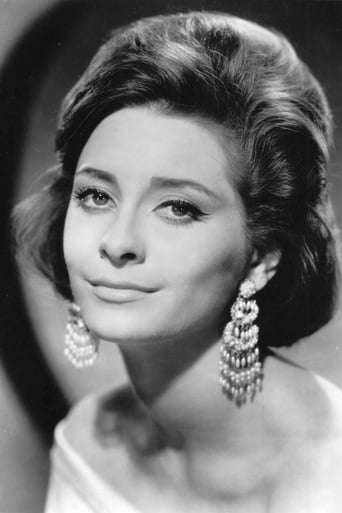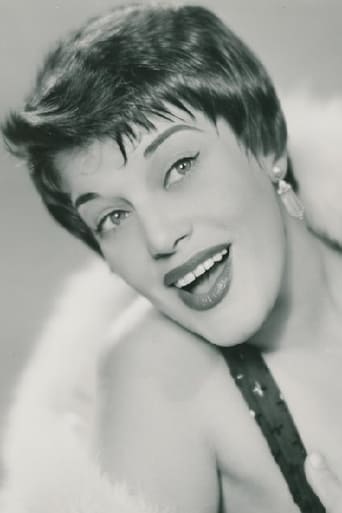trpdean
This is really an enjoyable film - essentially excerpts from interviews with many of the acting stars (plus Sondheim and Prince) on Broadway from 1945 to 1970.It is gently shaped in chapters such as the actors' first feelings on arrival in New York, how they got by, how they learned of available parts, what they liked to do after the show, how Broadway has changed. Many of the interviews contain fascinating and humorous anecdotes - told well by obvious experts at the game.To illustrate the interviews, the director has found much rare footage of screen tests, audio or video recordings of the plays, photographs of New York at different periods, playbills, posters that are shown as the audio interview proceeds. He has done a wonderful job.About five years ago, I (finally) obtained cable television. When I saw there existed a one hour program called "Inside the Actor's Studio", I thought it would be rather like this film - hour long interviews with everyone from Uta Hagen to Celeste Holm, from Hume Cronyn to Frank Langella. To my surprise, the program instead consists of interviews with those spoken about each evening on "Entertainment Tonight" or "Access Hollywood".I do have a question about the title. I am not at all sure that I would call the period 1945-1970 the "golden age" rather than simply the second half of a golden age that began at the end of World War I. Certainly the period 1919-1945 was as extraordinary as the later quarter century. Imagine the earlier quarter century and the premieres in the U.S. of plays and revues from Eugene O'Neill, Jerome Kern, Rodgers & Hart, George M. Cohan, Oscar Hammerstein (I), Flo Ziegfeld, Sidney Howard, George White, George Carroll, Maxwell Anderson, Robert Sherwood, Lawrence Stallings, Marc Connelly, George S. Kaufman, Clifford Odets, Marc Blitzstein, Cole Porter, Sidney Kingsley, Moss Hart.I also have the feeling that the period 1919-1945 was a more "international" period on Broadway than the later period. I would guess that productions (often American premieres) were far more common in this period than the later quarter century: of Chekhov and Hauptmann, Schnitzler and Grillparzer, Anouilh and Claudel, Gorky and Sudermann, Hoffmansthal and Shaw, Pinero and Coward and Lonsdale and Strindberg and Ibsen and Cocteau and Genet and Pirandello.There's something to be said for the assumption that the New York audience would delight in dramas set far away in different cultures - and that the New York directors, set designers, musicians and actors could well handle them. Imagine the first reactions of an audience in the 1920s, 1930s or 1940s to the first productions of The Weavers or Arms and the Man, Three Sisters or Enemy of the People.Moroever, if the director does choose to make a (necessarily different form of) movie about the earlier period - we can learn far more about other legends such as Eva LeGallienne, the Lunts, the Barrymores, Helen Hayes, Katherine Cornell, Ziegfeld, Rose, Belasco, the making of Showboat, etc.(Yet of course I understand why the director limited the film to the later period - i) the film is guided by his enthusiasm and he was born after World War II, ii) those from the earlier period are mostly dead - this is primarily an interview program, iii) the audience is more likely to remember later plays and musicals, and iv) the audience is more likely to respond to more recently written and staged plays and musicals).I was pleased to see the plaudits to Laurette Taylor. If he were alive and interviewed, the director would have heard Lawrence Olivier echo those in this film, since he has written himself (in either "Confessions of an Actor" or "On Acting") that her performance in The Glass Menagerie was the greatest acting performance he had ever seen. (He also wrote that the best 'Hamlet' he'd ever seen was not by an Englishman, but by John Barrymore on Broadway).
jotix100
Rick McKay is an invaluable source when it comes to what theater is all about. His other documentary, Elaine Stritch at Liberty, was excellent. In this new work, instead of concentrating on a single performer, he explores the best years of Broadway and the commercial theater during the era when it was at its peak.The strength of the film is the intimacy one feels whenever the stars, being interviewed, speak directly to the camera, and thus to us. It's just as if these performers are telling us their secrets. There is an immediacy that no other documentary on the subject ever projected before.In a way it is a world that is no longer here. The fact is that not only it's almost prohibitive to go to the Broadway theater, but it's also about the quality of what's being shown these days. When ticket prices for musicals go over $100.00, producers can only bring to the stage only those shows that might prove to be money makers. Then, of course, there is no guarantee for commercial success.Sadly, most so called stars working in musicals these days have no voices to fill a theater. Since everything is amplified, it's as though one is listening to the cast album of the show, not to a live performance. These days producers will import a Hollywood star to do a musical for the name and possible revenue that will be generated, rather than for artistic merit.It was delightful to hear actors talking about their peers. How a Laurette Taylor, a Marlon Brando, a Kim Stanley, were admired for their talent as well as for the integrity they brought to each performance. Since theater happens whenever actors are on a stage, most of the last century's historical performances can't be appreciated because they weren't done in front of a camera.This film is a must see for theater enthusiasts.
mrichards2004
Saw this film recently in a festival and thought, "Thank God for festivals, for where else would I ever see this film?!" But, the filmmaker did an interview with the audience afterwards and said that a distribution company has taken the film and it is going to open in theaters around the country this summer. What great news!This is a movie every young person should see who likes movies, tv or theater. It is so inspiring and it truly captures the brilliance of great actors, singers, writers and composers. I always thought the world would continue to create great creative geniuses who came to places like New York and made history, but it doesn't seem to be any more. Much like the people in this film, "I thought it would go on forever."But, this movie makes me feel optimistic again because any time you see something this powerful (and this is a powerful movie) I begin to believe again in the hope of great art, whether on stage or film or tv or maybe the next era is digital video. Who knows? But, run don't walk to see this movie if it opens anywhere near you!




